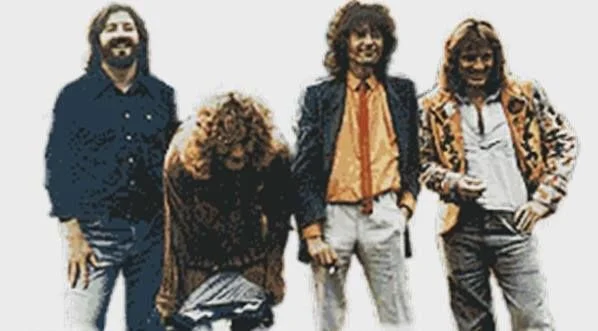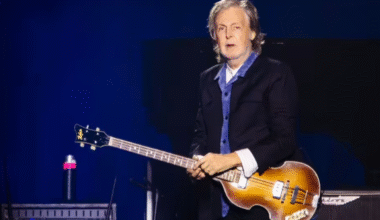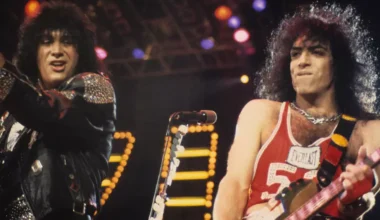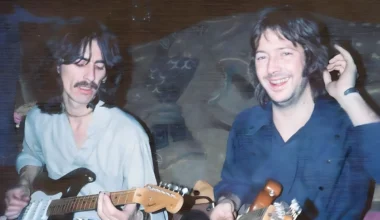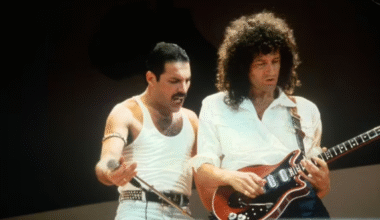Long golden locks, a belting voice, a well-oiled torso, and trousers so tight you could count the change in his pocket: this description could apply to any number of frontmen, but it all started with Roger Daltrey. The Who were the thorniest rose of the flower power era. They were heavy, literally packing their drum kit with explosives and never once leaving a hotel room intact.
Daltrey was the face of this rogue operation. In Pete Townshend’s eyes, he certainly saw his frontman’s influence arise in the immediate aftermath of The Who’s ferocious beginning. Serving as a counterpoint to the winks and smiles of the Fab Four, Daltrey’s gruff, macho histrionics helped to usher music towards something a little heavier, something filled with a bit more testosterone.
In fact, when Daltrey really cut loose as the band rattled off their live record, Live at Leeds, Townshend proposes that they gave birth to heavy metal as we know it. Highlighting how they opened the door for a legion of others, the guitarist commented, “I think by that time [in the early 70s], we became aware that Led Zeppelin was snapping at our heels,“ he told Jackie Brambles.
“Eventually, of course, in heavy rock terms, they overtook The Who. But I think Robert Plant was a shrieker. He copied the way that Roger [Daltrey] looked on stage, you know,“ he said.
Daltrey didn’t exactly see it that way—the matador-like musician saw Plant and his pals as a necessary advancement of an ailing genre. “When Led Zeppelin first came out I thought they were fantastic. They supported us on one of their first gigs in the States. I thought they were brilliant. Throughout our early history, we used to do loads of gigs with Hendrix and Cream, that three-piece-band-and-a-singer formula,” he told Classic Rock.
However, they took this staple formula and subverted its familiarity with grandeur. ”Zeppelin took it to another level,” he added. ”There was a power there. They were like Cream, but with a lot more weight. Jack Bruce of Cream was really a jazz and blues singer, but Robert knew how to rock.”
The group galvanised all the strands of modern rock and made a shiny new alloy. The traditionalism of the blues was self-evident in their bold mix. The adventurous virtuosity of jazz was there, too. But so was the rattle of rock ‘n’ roll attitude that The Who had been fronting for years.
“All of a sudden, there was a new form of music. The music scene was starting to get a bit tired. Even Hendrix was starting to get tired then, moving into jazz. Zeppelin regenerated it,” Roger Daltrey said. He was gladdened at the arrival of a new rock ‘n’ roll dawn. Without him, it may never have happened in the first place.
